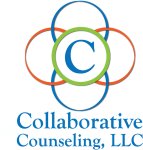The Five C’s of Piloting Your Career

Aircraft pilots are taught to follow a list of critical steps if they become lost while in flight: Confess, Climb, Conserve, Communicate, and Comply.
Often referred to as the “Lost 5 C’s,” some variations add a sixth tag word like “Circle” (in order to take better stock of one’s exact location). I’ve modified the fifth “C” for career navigation purposes, making it “Commit” instead of comply, as some situations lack the equivalent of air-traffic controllers and might call for a well-reasoned plan that does not conform to the status quo.
So here is how the “Five C’s” can be applied to the common predicament of getting lost in the midst of your career odyssey.
- Confess: Admit to yourself (and other people you trust) when you’ve lost your sense of direction, purpose, or meaningful progress regarding where you want to be in your career. The opposite of confession is denial or avoidance of relevant facts and truth, which can foster naïve complacency and continued meandering along a fruitless pathway. Consider: While facing the facts of your career situation might feel awkward or even demoralizing, it can also increase emotional clarity, cognitive focus, and creative energy. Giving a name to that vague sense of restless angst is the first step towards understanding and enacting critical changes.
- Climb: Gain perceptual “altitude” (i.e. get above the weeds!) to expand your mental horizon with a more accurate view of the larger landscape. This will include contemplating the scope of your life, education, and job accomplishments, your inner sense of calling or meaning, the local and global economy, the market demand for the compensable services you can or wish to provide, emerging trends in your field or profession, etc. Consider: You might take a day off for a solo retreat, pack a lunch with your notebook or laptop, and situate yourself in a park or library for several hours. Reflect on your original sense of mission or calling (perhaps from an old resume) and recent accomplishments. Compiling a written inventory of all relevant life and career factors can be a good prompt for soul searching reflection, along with a S.W.A.T. analysis (strengths, weaknesses, assets and threats). Similar to evaluating a business plan, you can assess how to capitalize on your strengths and assets and better compensate for any weaknesses and potential threats to your goals.
- Conserve: Like the pilot or commander of a vessel, reduce unnecessary or wasteful drains on your finite reserves of energy, time, concentration, and creativity. In order to make these precious commodities last for an uncertain length of time, you’ll need to a more conscious “budget” to guide how they are deployed in accordance with your priorities. Consultants sometimes make the following quip: “Your current system is perfectly designed to produce the results you are experiencing.” Consider: Evaluate and trim back on nice-but-optional activities (leisure, volunteer, social, civic, etc.) that are not essential to progress in your life and career plan. This can free up hours in your schedule for education, networking, and special projects of strategic value to your overarching career plan (not just your employer’s agenda).
- Communicate: Confer with all reliable sources of advice, data, and intelligence, including two-way dialogue with knowledgeable people who can facilitate development of your best qualities and ideas. This means much more than simply reading news feeds and career advice blogs (like this one!). Consider: Set up an intentional meeting with a close friend, a faculty advisor, your pastor or rabbi, or a trusted professional mentor to discuss your career path questions. This can lead to new insights and awareness, with practical suggestions and some accountability for follow through. For increased objectivity, many people also benefit from investing in a few career counseling sessions with a professional coach or licensed counselor.
- Commit: Once you have renewed your focus on your primary and secondary goals, with practical means of getting reaching them (“Plan your Work”) then activate the types of observable behaviors (not just abstract thinking) that will carry you towards that next goal (“Work your Plan”). Even if it is only an interim goal, not your ultimate destination, the process of committing to a well-reasoned course of action with measurable benchmarks will be valuable practice for every ensuing leg of your journey. Consider: Create a written plan for researching formal education options (degree or certificate), initiate communication with five known and five new business professionals to activate your network, and apply to more jobs that are closer to your ideal goal, even if outside your normal sector or geographic range.
In the many dicey moments of my own career odyssey, amidst waves of despair, fatigue, or disorientation, I have considered Charles Lindbergh’s historic 1927 flight from New York to Paris in his experimental aircraft, the “Spirit of St. Louis.” His years of planning and preparation likely entailed numerous examples of the Five C’s, in addition to sheer pluck, perseverance, entrepreneurship and courage. Dodging huge storm clouds during his 33 hour solo flight, and without any modern navigational aids, he became convinced he was hopelessly lost.
During the last segment of his flight, he was so physically exhausted and sleep deprived that he began to nod off and lose control of his aircraft. His mind wandered to bemoaning his plight and berating himself for all the things he could have done differently. After listing his woes and dire circumstances, he bolstered his resolve with the admonition, likely spoken out loud, “But I have an ocean to cross and a continent to find.” When he finally reached the southern tip of Ireland, he was 2 ½ hours ahead of schedule and less than three miles off course.
More than just a drill for effective navigation, in both aircraft and career adventures, applying the Five C’s can foster an overall attitude and mental discipline for almost every life endeavor. Face the facts, expand your perspective, manage resources in accordance with your strategic goals, collaborate with reliable sources of knowledge, and follow a well-reasoned and measurable plan with focus and courage.

